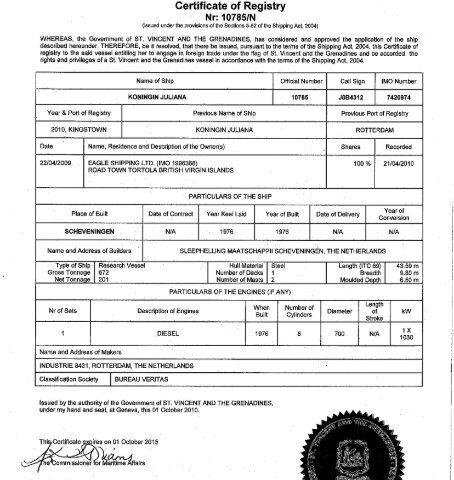World shipping, up to the early post-war years, was dominated by the fleets of the
traditional maritime nations—among these we may mention the United Kingdom
with its imperial trade routes, the United States, France, the Netherlands, and the
Scandinavian countries. From the 1950s onwards, a gradual but ever accelerating
contraction took place in the fleets of these nations. To some extent, this contraction
can be attributed to a diversion of resources from the maritime sector, the
consequent slackening of investment, and catastrophic slumps such as took place
in the mid 1980s. However, the most significant reason for the haemorrhage of
tonnage from national flags has been the use by ship operators of the open registries,
often known as ‘flags of convenience’.
Tag: Can a ship be registered in two countries?
Freedom of States to Fix Conditions for Registration
Article 91 of UNCLOS provides: ‘1. Every State shall fix the conditions for the
grant of its nationality to ships, for the registration of ships in its territory, and for
the right to fly its flag.’
Registration of ships in shipping, maritime law and law of the sea
Registration means the entering of a matter in the public records. Registration
is generally—but not always—not only a precondition for, but also the test of, a
vessel’s nationality. This is the public law function of registration, as opposed to its
private law function.
About Nationality of ships
A vessel may be considered as possessing the nationality of a State even though she
is unregistered, possesses no documents evidencing that nationality, nor even flies
the flag of that State. Historically, a vessel’s nationality was determined by reference
to so-called connecting factors: as we have seen, the Navigation Acts required
every British ship to be of British build; the French Acte de Navigation of 1793 contained
similar provisions in respect of French ships. In much the same way as the
Jones Act in the United States, the purpose of these laws was protectionist. The UK
Merchant Shipping Act 1894, prior to its amendment by the Merchant Shipping
Act 1988, defined a British ship purely in terms of ownership, regardless of whether
or not she had been registered as the Act required.




